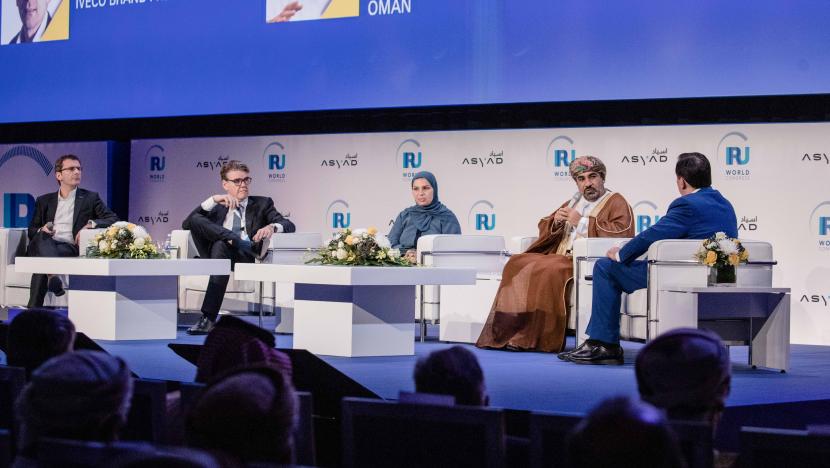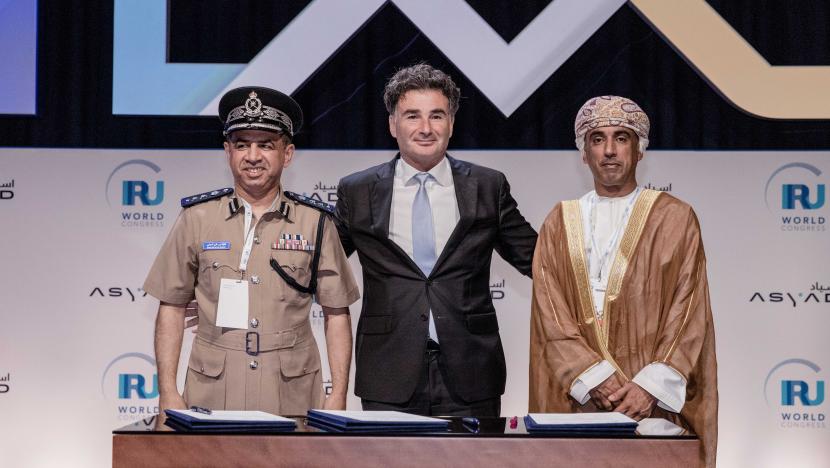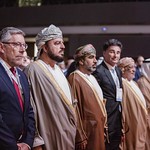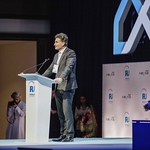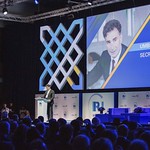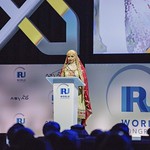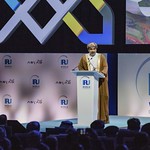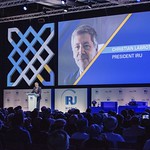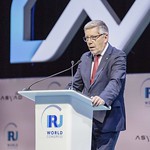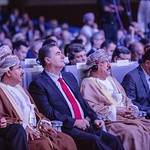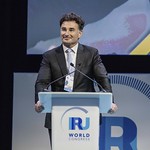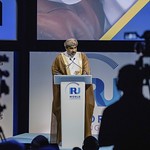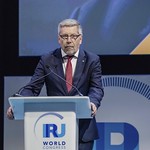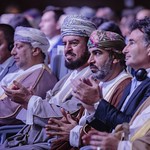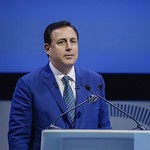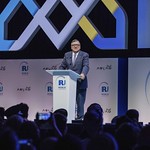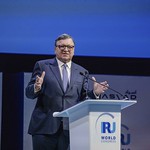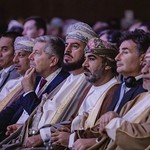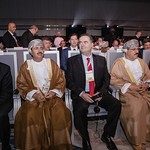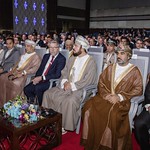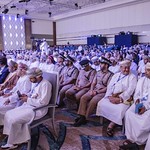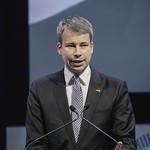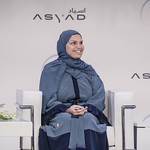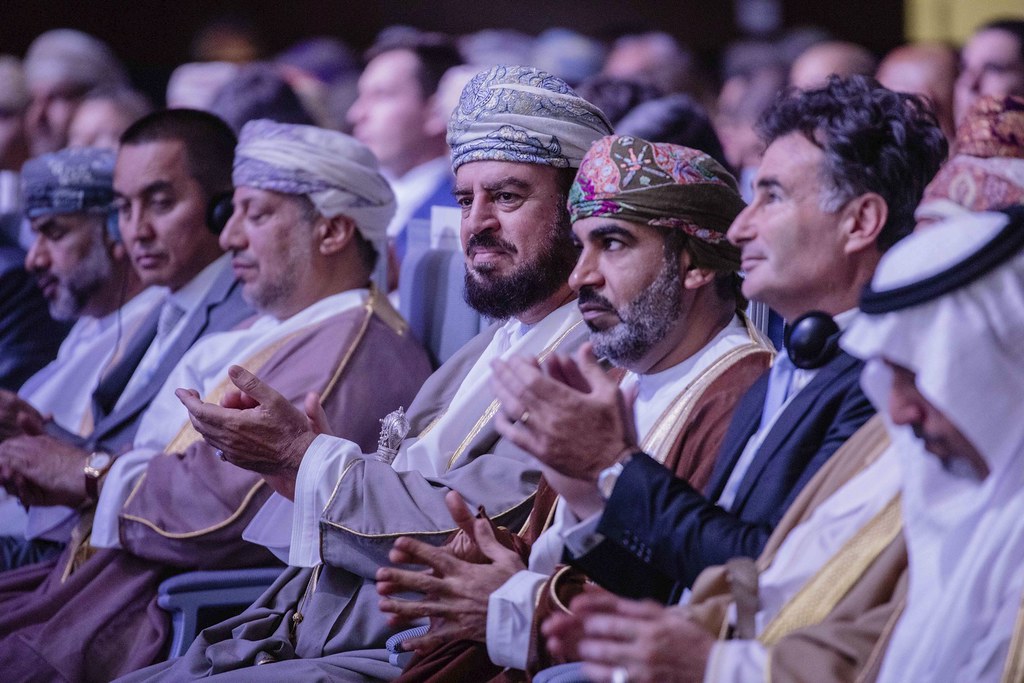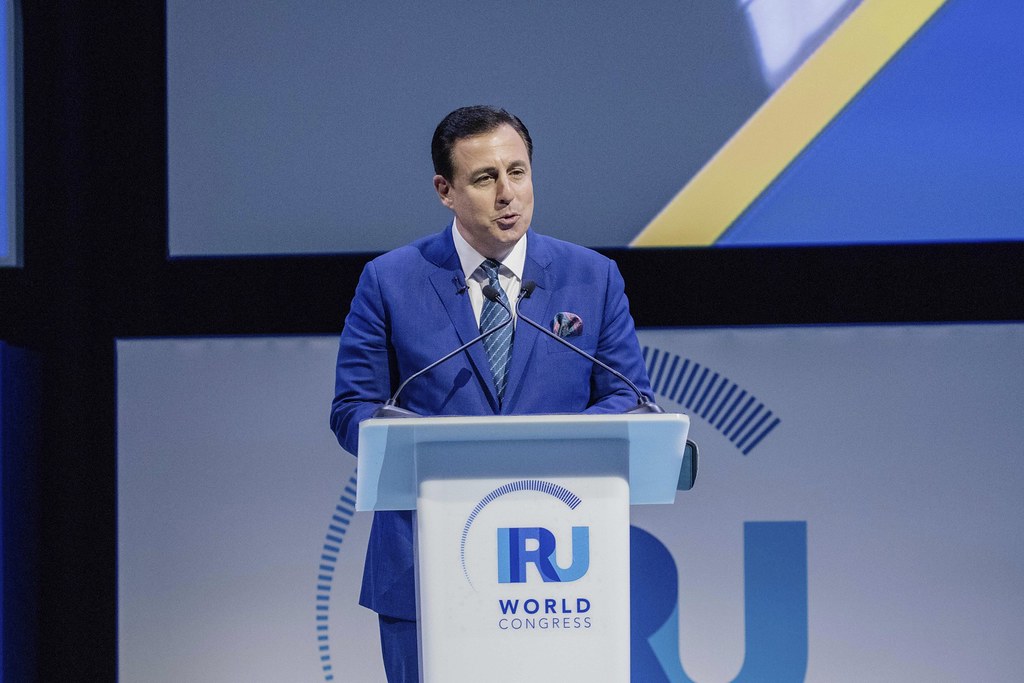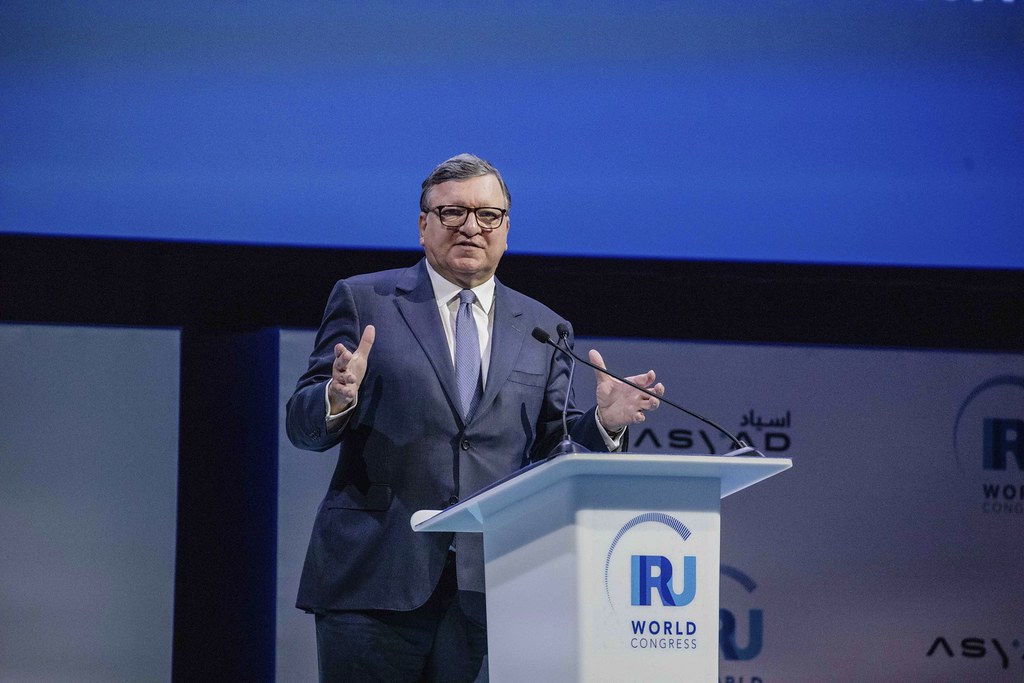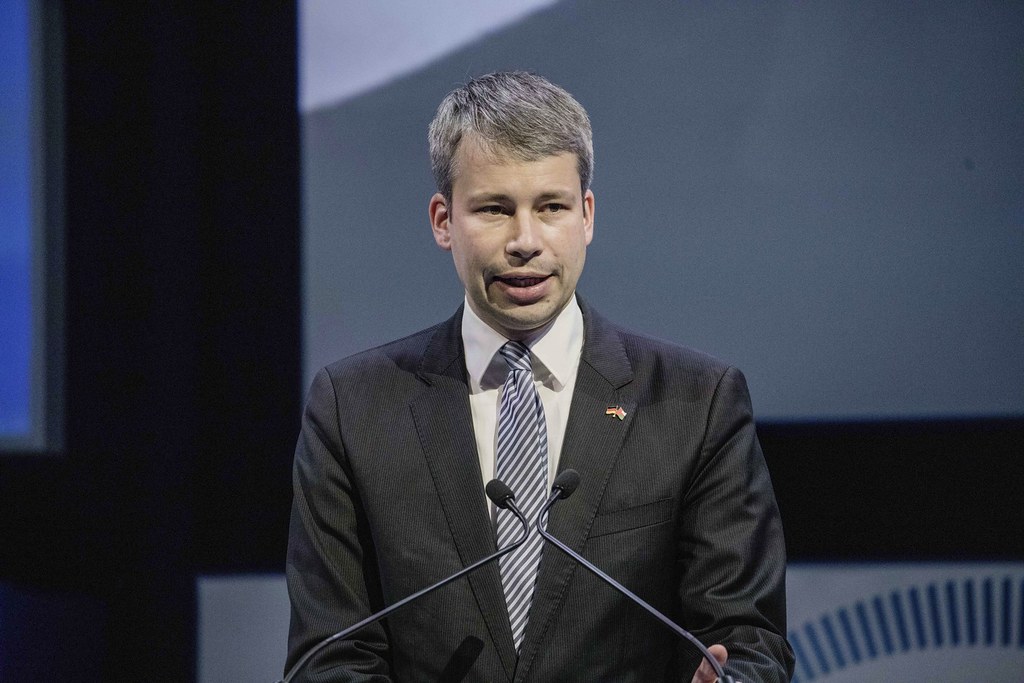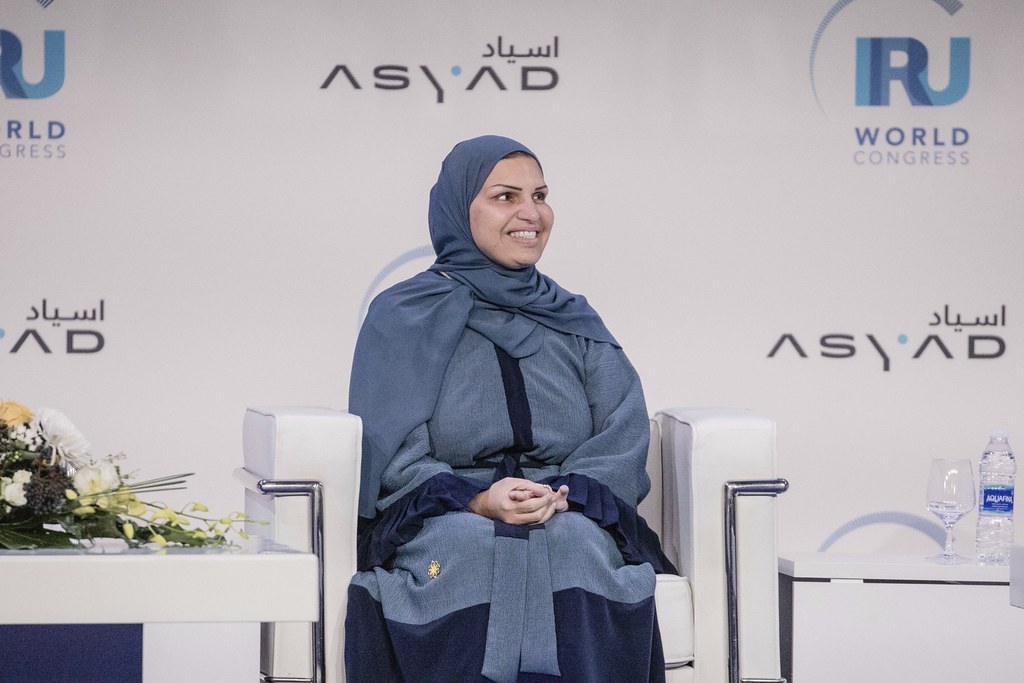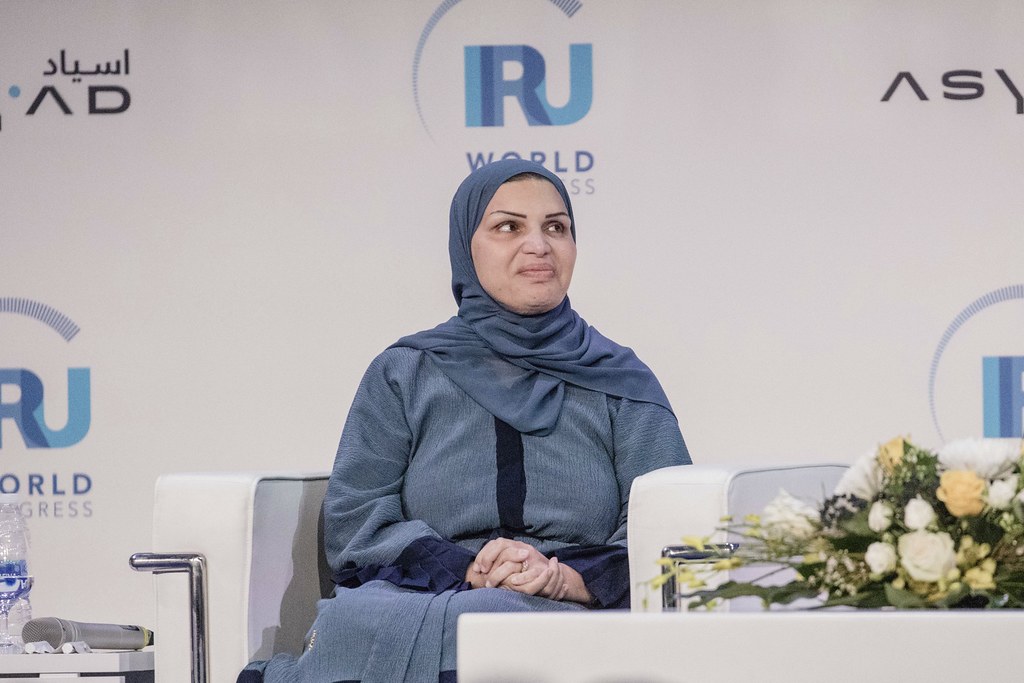IRU World Congress plenary session 1 wrap-up
With globalisation, new trade hubs are emerging and reshaping global trade routes. This puts new pressure on regulatory convergence across the world. At the same time, worldwide transport infrastructure investment is projected to increase at an average annual rate of about 5%.
What does the constantly evolving “new world” order mean for road transport – and what does mobility mean for the new world order? How should regulators adapt to growing trade and boost efficiency? How do we enhance regional cooperation? How is vehicle technology evolving to help improve trade?
The first Plenary Session of the IRU World Congress started with the national anthem of the Sultanate of Oman, followed by a gracious welcome speech by HE Eng. Dr Ahmed Mohammed Salem Al-Futaisi, the Minister of Transport and Communications, who underlined the “Middle East is becoming a hub again – and Oman is at the centre of this”.
Christian Labrot, the IRU President, replied on behalf of all the members and attendees. Addressing the audience, he said, “You are the people that can define and shape the future of the world transport industry. The world we operate in is changing rapidly, but with challenge comes opportunity. Our goal is to set the industry on the right path to prosperity.”
Moderator, Emerging Markets Editor and Anchor for CNN, John Defterios, set the scene, outlining the theme of the Congress – “Innovation on the Move”. He explained how investment into hard infrastructure must be equalled by the soft infrastructure – the processes and systems – which will enable the transformation of transport to be effectively managed. He said, “the challenge is to take the aspirations and to match reality – and the soft infrastructure requires investment if it is to equal the pace of change that we are seeing in the 21st Century. Particularly with respect to education and training.”
Following the formal proceedings, Jose Manuel Barroso spoke about the importance of developing trade links, and removing barriers to trade – using personal insights from his unique experience. Mr Barroso has been Prime Minister of Portugal and was President of the European Commission during some very difficult years, covering the decade from 2004. He provided some very useful lessons about building effective trade relations.
"We now face a challenge to integration and interconnectedness – unprecedented in its scope, speed and intensity"
He said, “During my time at the European Union, I spent ten challenging years resisting several crises and forcing European integration. The idea of transport and mobility was linked to this integration – and also historically to the opening of the world, and the interconnection of economies and societies.”
He continued, “The economic and social progress during that time was remarkable. But we now face a challenge to integration and interconnectedness – unprecedented in its scope, speed and intensity. Is this trend going to win? We are at a critical moment of transition. The future depends on you and technological advantage will define that future. When we speak about transport – we speak about connecting people – we are speaking about peace.”
Mr Barroso’s rousing keynote was followed by a panel discussion on how to seize the technological advantage to progress transport, mobility, logistics and trade.
Steffen Bilger, Secretary of State at the German Ministry of Transport and Digital Infrastructure. As well as discussing the importance of trade, he also talked about the innovations that will transform our industry, highlighting the expansion of digital infrastructure as critical.
Lujaina Mohsin Darwish, CEO of the Oman State Council, provided the political context for Oman’s plans to improve its role in trade in the region, as well as looking at the barriers that need to be overcome.

